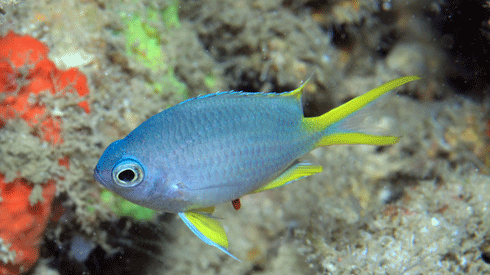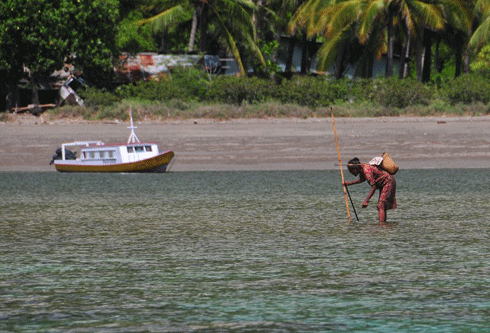
|
Published: 11 February 2013
Timor Leste protects marine resources with first No Take Zones
Coinciding with the ten-year anniversary of the Democratic Republic of Timor-Leste, its government has established the nation’s first ‘No Take Zones’ (NTZs), where new fishing restrictions and other protective measures have been put in place to enable replenishment of fish stocks and protection of coral reefs that support local people.
According to international NGO, Conservation International (CI), the protective measures are aimed at conserving the as-yet unrealised value of Timor-Leste’s marine-based natural capital, which is essential for the food security and economic development of one of the world’s newest and least developed countries.
The announcement of the zones was made by the Timor-Leste Secretary of State for Fisheries, Rafael Periera Goncalves at Com, a coastal community five hours from the capital of Dili.
The seven ‘No Take Zones’ are embedded within broader multiple-use marine protected areas, covering 207 square kilometres of coastal waters of the island nation’s only national park.
The zones encompass important coral reefs that serve as reef fish spawning sites, enable fisheries replenishment, and protect key dive and snorkel sites for tourism purposes.
‘We appreciate the interest in the development of fisheries sector in Timor-Leste, a sector that plays an important role in the prevention of malnutrition, food security and livelihoods of fishermen and people of Timor-Leste,’ said Mr Gonçalves.
CI’s Timor-Leste Country Director, Candice Mohan adds that the launch of the No Take Zones ‘holds great promise for the future of Timor-Leste’s marine environments and the contribution they can make to artisanal fisheries, local livelihoods and economic development’.
‘A well-managed coastal ecosystem is extremely valuable,’ she says. ‘It can provide a sustainable supply of seafood, is critical for marine tourism, and increases the resilience of local communities to the pressures of climate change by ensuring diversified livelihood options.’
The announcement of the No Take Zones follows the results of a Rapid Assessment Program marine survey of Timor-Leste’s coastal waters, conducted by a team of international and Timorese scientists. The results showed that the coral reefs in Timor-Leste were some of the healthiest and most diverse in the world.
‘We found that the coastal waters surrounding Timor Leste contain the second-highest average of reef fish species per site for any region on Earth to date,’ said Dr Mark Erdmann, a CI marine adviser and biologist. ‘This biodiversity also extends to the coral reefs, with three potentially new coral species identified.’
The survey results have increased Timor-Leste’s reef fish species records to 814 species (six of which are likely new species), with visual counts averaging nearly 212 species per site.
The coral reefs that were surveyed were also recorded as being exposed to cooler water temperatures than reefs in neighbouring countries. This, combined with strong currents, is likely to confer strong climate change resiliency to Timor-Leste’s coral reefs, which help provide buffer against storms and serve as nurseries for locally-important fish benefiting human well-being in Timor Leste.
With appropriate management, these marine resources hold significant potential for the food security and economic development of one of the world’s newest and least developed countries.
In response to the Timor-Leste Government’s plans for fostering tourism growth as a contribution to economic development, Dr Erdmann also noted the great potential for marine tourism to work in synergy with improved protection and management efforts.
‘It is important to set clear regulations from the outset of such activities to ensure that local communities derive significant benefits from tourism in a way that encourages even better stewardship of their reefs’.
Source: Conservation International





